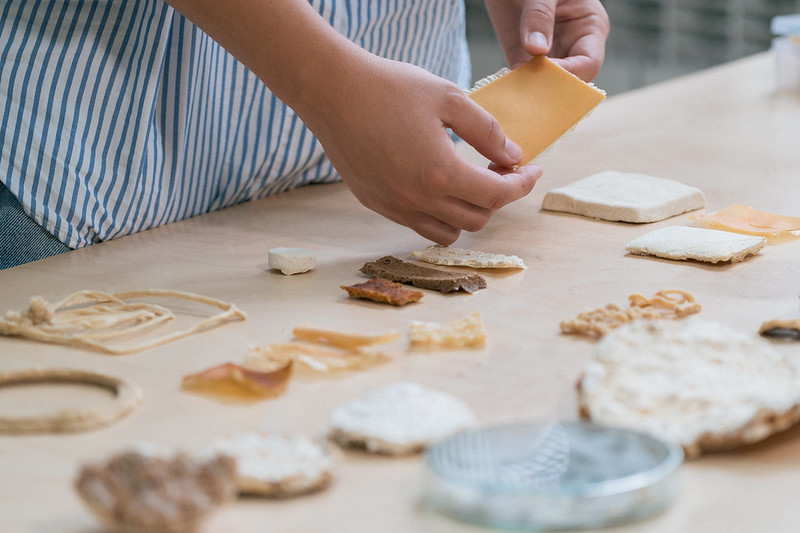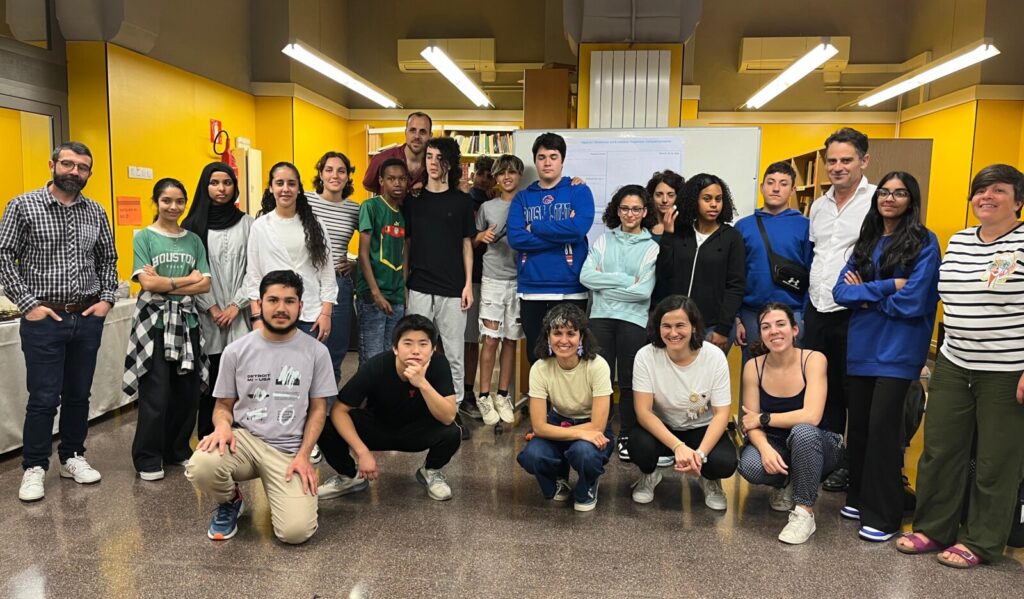
SCORE Project Results
SCORE platform: a hub for circular economy open education resources for teachers
Empowering teachers towards Circular Futures
SCORE Project has acted as a gateway to fostering circular economy education across schools in Europe and beyond. SCORE’s mission is to make quality education for a circular economy accessible to educators, students, and communities worldwide. As an open platform, SCORE offers tailored pedagogical content, materials, and cutting-edge e-learning tools designed to inspire a new generation of circular thinkers.
Results of the SCORE Project: the platform
SCORE (Supporting Circular ecOnomy thRough Education), a three-year project funded by the Erasmus+ Programme of the European Union, is officially coming to an end. It focused on engaging European teachers and increasing the awareness of the circular economy for students aged 15-24.
The SCORE project was successful in designing, testing, and providing open and innovative pedagogical material through an online platform, developing tailored high-quality Open Education Resources (OER). The project promoted circular economy thinking through a multidisciplinary approach, focusing on knowledge exchange, international networking, mobility programs, and ongoing cooperation. One of its key results is a platform offering open educational resources to help teachers with circular themes in their classrooms
What is the Circular Economy?
The circular economy aims to minimize the extraction and waste of natural resources by encouraging practices like recycling, reuse, and repair. In contrast to the traditional linear “take-make-dispose” model, the circular economy promotes sustainable consumption by encouraging consumers to engage in sustainable practices and producers to design eco-friendly products that prioritize durability and resource optimization.
Why was the SCORE Project necessary?
The circular economy and sustainability are trending topics, and this applies to education as well, but teachers lack the knowledge and tools to prepare future citizens in some of these topics. SCORE was born to bridge the gap between the need to start working with sustainability as a transversal topic and the lack of a specific space for it in most of the European curricula. The project aimed to empower teachers with basic knowledge and open educational resources that they can download and use as such, or customize to meet their own needs.
Discover the SCORE PLATFORM
To help teachers engage with this new way of thinking, SCORE project developed an online platform that provides teachers with open educational resources to help them work with circular themes in their classrooms. The platform offers learning blocks, challenges, and the opportunity for teachers to give feedback and collaborate with other teachers across Europe.
The SCORE platform offers two main types of teaching materials:
- Learning Blocks: These are focused on a specific concept related to the circular economy, such as food waste or the environmental impact of textiles. The blocks are designed to be modular and include different formats such as guidelines, templates, presentations, and videos.
- Circular Challenges: Challenges guide students through a circular economy journey over several weeks or months. The challenges use a “learning-by-doing” approach with five steps: raising awareness, exploring practices and systems, making and prototyping, reflecting, and sharing. Some examples of challenges include clothing as a service, simulating climate solutions, and revaluing food waste.
SCORE in Action
To prepare educators to use the platform, the SCORE project organized a Train the Trainers (ToT) program. In Spain, the ToT was conducted in three cycles, adapting the approach based on teacher feedback. Initially, a four-session online series was used, but it was condensed to a single two-hour session to improve efficiency and meet teacher needs.
In total, 23 teachers from 14 different schools in Catalunya were trained, with eleven teachers ultimately participating in the testing phase of the project. The testing phase involved 390 students, primarily between the ages of 14 and 17. Schools participating in the testing phase represented a diverse range of educational contexts, spanning across different regions of Catalonia.
The SCORE Final Event, held on May 24, 2024, was a collaborative effort between Fab Lab Barcelona, Institut Fort Pius, Transfolab Bcn, SlowLab, and Catalan teachers. This event, was an all day session where students focused on e-waste and low-tech solutions, involved 20 participants from three high schools: Fort Pius, Rafael Alberti, and Puig i Gairalt. Students learned about circular strategies like repair, design with waste, and changing behaviours and presented their ideas on how to give new life to electronic objects.

The SCORE project was also presented during the annual FABx24 Event in Mexico and as part of the Erasmus+ Days.
Impact of SCORE
The project contributed to circular economy education by:
- Creating high-quality educational resources.
- Empowering educators to teach about the circular economy.
- Building a community of educators across Europe.
- Engaging young people in circular economy principles.
The SCORE platform is accessible worldwide and offers the potential for teachers globally to incorporate circular economy education into their classrooms.
Fab Lab Barcelona’s commitment to circular practices
Since 2007, as one of the first European nodes of the Fab Labs Network promoted by the IAAC in collaboration with MIT, Fab Lab Barcelona has led the integration of circular economy principles into community projects and educational transformation. Among its key initiatives is Remix El Barrio, recognized with the prestigious STARTS Grand Prize of the European Commission in 2021 for converting food waste into resources through community design. This project evolved into Remix the School, involving schools from across the Barcelona area in a sustainable and creative learning experience.
In the field of urban sustainability, Fab Lab Barcelona has developed projects such as Reflow, which promotes regenerative flows of resources in cities, and Circular Cities Challenge, which promotes circularity in urban environments. Regarding primary and secondary education, the DTECLA project, in collaboration with the Diverse Foundation, stands out, accompanying highly complex schools in their transformation towards meaningful and experiential learning. This work laid the groundwork for SCORE, a project co-funded by Erasmus+ that promotes awareness of the circular economy among young people.
Together, these initiatives consolidate Fab Lab Barcelona as a benchmark in sustainable innovation for communities and education.